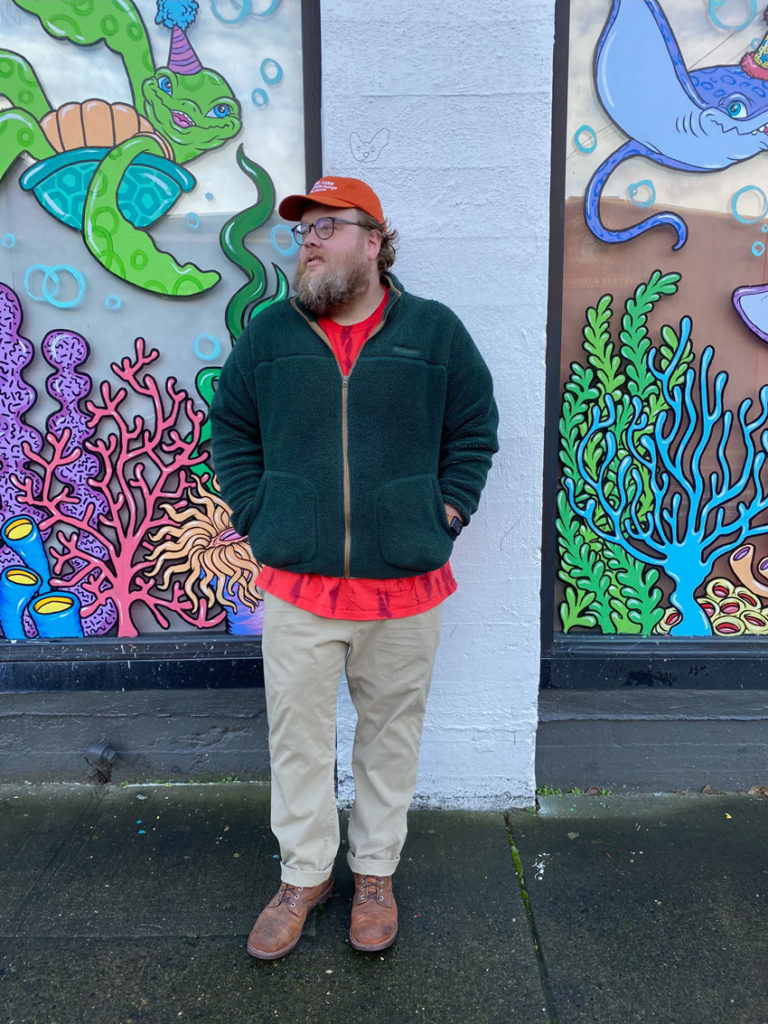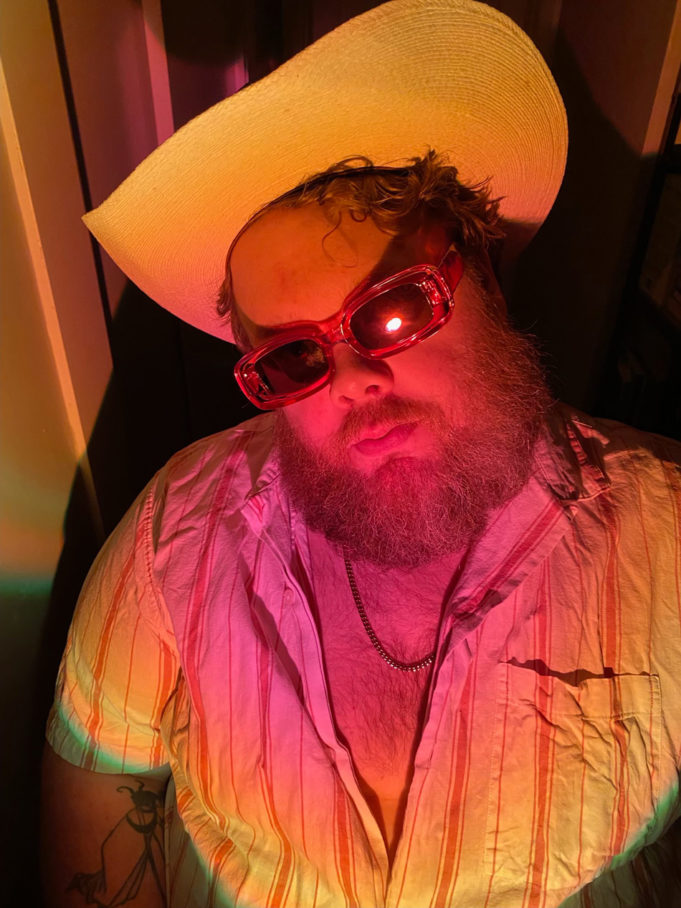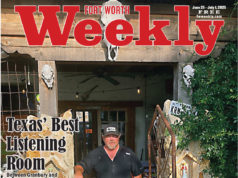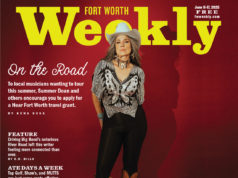When it comes to inspiration, you never know the what or the when that will unlock the muse or motivation that moves you off the couch and over to the proverbial piano. As a case in point, singer-songwriter Wade Gill has played guitar since he was 6 years old, but he didn’t write any songs until 2020 at the age of 33. On Friday, under the moniker Adult Male Blond, Gill will release to streaming services “Ram Dass,” the second single from his 2020 material, which he tracked last year with engineer Britt Robisheaux at Cloudland Recording Studio.
You might surmise that a person in his 30s might not have had the time to really pursue making music, and since Gill was a high school teacher for many of those years, you would be kind of right. But, ultimately, he found the time. All it took was a little thing called a “global pandemic.”
“Seeing the imminent demise of the world kind of re-prioritized things,” he said. “I’ve played music all my life, and I thought, ‘I have all these things I wanna do,’ so I wanted to do it then.”
Like most people during spring 2020, COVID-19 lockdown orders left Gill with plenty of time on his hands. “I started writing songs in earnest. I was teaching at the time, and I had the summer off, and you couldn’t do anything in that first summer [of the COVID-19 era], so I thought, ‘If we’re all gonna die, at least let me die doing something I love to do.’ ”
Of course, in 2020, COVID was not the only source of national anxiety. Gill was also horrified and enraged by the murder of George Floyd by a white cop, which inspired what he thinks of as “protest, almost like folk songs.”
Gill is an unapologetic progressive, yet he didn’t feel like it was his place to enter that genre and talk about institutional racism.
Protest music, he said, “was at the top of my mind. There used to be overtly political music, so I started off doing that a lot, writing these kind of country songs, like write a country song but invert the country stuff, make it very left-wing, working class, but I was less stoked to release those. After the pandemic passed, it was like yes, these things are still all true, but what does writing about Black Lives Matter and the cops kicking heads in 2020 and then releasing them two years later do? Like, what if the protest songs of the ’60s came out a decade later? And who am I anyway to contribute to this discussion? … I had to take my ego out of it.”
Along with racist cops and virulent respiratory infections, Gill said he had been thinking a lot about his own ego at the time. “I was meditating and listening to [psychologist and guru] Ram Das on Audible and thinking about how at that time, all songs are pandemic songs, but also at that time, everyone was so inwardly focused, and I was like, ‘What if I get COVID? What if I die?’ And Ram Das is like, ‘Let go of the ego,’ and I found that really helpful. Anxiety is like a highly inwardly focused state. How do I get out of it? So that thinking turned into a song called ‘Ram Dass.’ ”

Photo by Cat Gill
Letting go of COVID anxieties helped him shift his focus into a “no better time than now” mindset, which is sort of how he ended up finding his sound, after he realized his sound was not “left-wing country protest tune.” And with both “Ram Dass” and “Little Alien of Mine” — his first single, which he released in December — it turns out that Adult Male Blond’s sound is a version of indie guitar rock in the vein of Jim James and Kurt Vile.
“I love My Morning Jacket,” Gill said. “I have a hard time kind of placing my sound, but people have told me my songs sound kind of like the War on Drugs, which I like, but I didn’t go into it trying to sound like anything.”
The comparisons are apt, though. On “Little Alien of Mine,” Gill sings in a pleasant high tenor, the reverb and delay on his voice soaring over a driving, mid-tempo backbeat that is very much reminiscent of the War on Drugs. “Little Alien of Mine,” he said, is “a love song [with] pop-culture alien references.”
That injection of subtle, off-centered humor is also a hallmark of Gill’s songwriting. “I like lyrics that are funny and cynical but that don’t take themselves too seriously. At my age, sincerity can be difficult. It’s hard to do it without being syrupy.”
Not surprisingly, Gill cites Warren Zevon as an influence. “That’s the angle. At the end of the day, I don’t know about werewolves in London, but [Zevon] tells a lot of stories about historical and meaningful stuff in a way that’s fun to listen to.”
Joining Gill at Cloudland were two members of local Americana outfit Thieving Birds — drummer Beau Brauer and guitarist/keyboardist Ace Crayton — as well as former Quaker City Night Hawks bassist Pat Adams, who also acted as a producer. The trumpet parts on “Ram Dass” were performed by a British bloke named Gary Alesbrook, whom Gill found on freelancer recruitment site Fiverr.com. Crayton also mixed the session, and the songs were mastered at Electric Barryland near Alliance by Jordan Richardson (Ringo Starr, Ben Harper, Son of Stan). While Gill has yet to play live (“I need a band to carry me,” he joked), he is eager to return to a studio to record more songs. He and his wife moved to Portland last fall after she found a new job there, so he is still feeling out the local scene there.
“I don’t really want to play acoustic solo-dude type shit,” he said. “Not to besmirch those players, it’s just not what I’m into, but if it were up to me, I’d go back into the studio tomorrow.”
Hopefully, he will get to track his music before the next pandemic happens.












